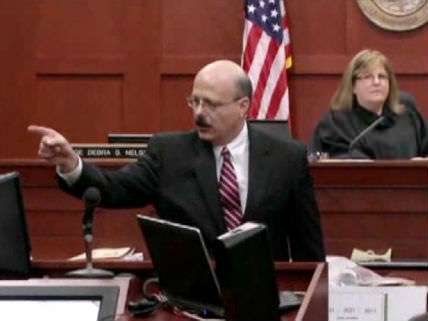Zimmerman's Prosecutors Did Not Think They Were Trying a 'Stand Your Ground' Case

Yesterday I noted that prosecutor John Guy declared during George Zimmerman's murder trial, "This case is not about standing your ground." Victoria Taft points out that two of Guy's colleagues were asked about the relevance of Florida's "stand your ground" law to the case after Zimmerman's acquittal. Here is how the exchange with Angela Corey, the state attorney appointed by Gov. Rick Scott to oversee the case, went (emphasis added):
Reporter: Can you talk about the Florida Stand Your Ground law and whether the changes in 2005 in the law affected the facts in this case and whether this case could have been won, perhaps, pre the changes in the law?
Corey: Well, justifiable use of deadly force has changed to a certain extent. Stand Your Ground is a procedural mechanism, as we call it, where we fully expected it because of what we were hearing that the defense would request a Stand Your Ground hearing. We would have put on the same evidence. It would have been in front of just a judge instead of a jury.
Reporter: What about the duty to retreat aspect?
Corey: Well, the duty to retreat aspect had sort of disappeared before Stand Your Ground kicked in.
What Corey meant, presumably, is that by Zimmerman's account he had no opportunity to retreat once the fight started, making the right to stand your ground irrelevant. Here is what Bernie de la Rionda, the chief prosecutor during the trial, said in response to a similar question (emphasis added):
Reporter: Could I get your impression of the 2005 expansion of the Florida self-defense statutes? Does this make your job harder?
De la Rionda: You know, self-defense has existed for a long time. And we've dealt with it in Jackson for a long time. We've tried a lot of self-defense cases; I've personally tried 10 to 15 self-defense cases. They're tough cases, but we accept it so… The law really hasn't changed all that much. Stand Your Ground was a big thing, but really the law hasn't changed. We have a right to bear arms and a right to self-defense.
In short, the defense did not see this as a "stand your ground" case, and the prosecution did not either. It seems quite unlikely, given the facts of the case, that the jury did.


Show Comments (33)